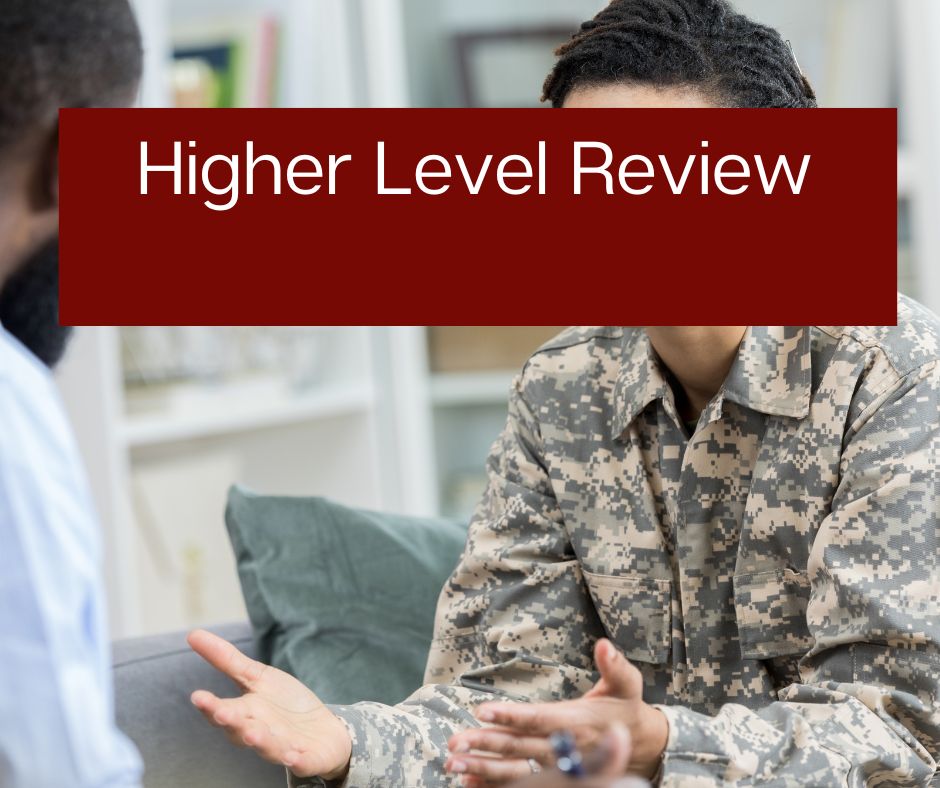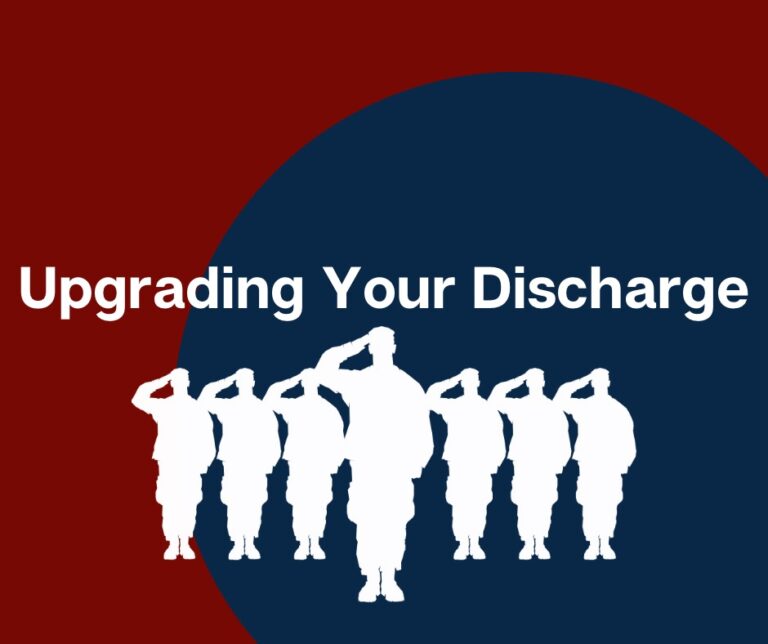What is a Higher-Level Review
Should you seek a higher-level review? Let’s face it. The VBA does not approve every claim. Many Veterans receive that letter which informs them their claim has been denied. For others, the VBA does not find their condition is service-connected. At some point, turning to a Higher-Level review becomes the best option. But, what is a Higher-Level Review?
The simple answer is that a higher-level review is an appeal to a more experienced adjudicator at the Agency of Original Jurisdiction (AOJ). The VA benefits program is administered at the local level, under the guidance of the VA Central Office in Washington DC. This local level consists of 58 Regional Offices (RO) located across the country (and world) with at least one Regional Office in each state. These Regional Offices are usually the Agencies of Original Jurisdiction.

Timeliness of the Request
As with every appeal or claim with the VA, it is necessary for the request for a higher-level review to be submitted within a year of the decision being appealed. If more than a year has elapsed since the decision was made, a new claim will need to be filed.
What Does De Novo Mean In a Higher Level Review?
A Higher Level Review is a de novo review by a more experienced rater. ‘De Novo’ is Latin, meaning ‘from the new’. It means that the rater cannot give deference to the previous decision rendered on the case except for findings which are favorable to the claimant.
No New Evidence May Be Submitted

A Veteran cannot submit new evidence when they file a higher-level review. The review is being requested on the claim which was denied. This means that the reviewer will only examine the evidence which was in the record at the time the decision was issued. This means that the Veteran cannot present anything new either in writing or in testimony before the reviewer.
However, the Veteran or their representative may submit argument as to an error by the previous rater. This argument cannot introduce new evidence, but it can spotlight why the Veteran feels the claim should be approved drawing from the evidence already of record.
Do you have new evidence you want to submit? Veterans can submit a supplemental claim. They can include the new evidence with the supplemental claim as new and relevant evidence. The VA will consider the claim as being continuously pursued if filed within a year of the denial.
Higher Level Review Decisions
The reviewer may make several different decisions. These include:
- Grant the claim
- Remand the claim to the RO
- Deny the claim
The reviewer could grant the claim for at least different reasons. They may feel that the evidence in the record provides reason to grant the benefit. They may also grant the claim due to a difference of opinion with the previous adjudicator. However, it is important to note that the reviewer can’t decide the claim in a manner less favorable to the claimant simply on a difference of opinion. Any favorable portions of the decision will stand unless there is a finding of a Clear and Unmistakable Error.
In addition to granting the claim, the reviewer may decide that the original RO did not completely satisfy its Duty to Assist. The reviewer will return the case to the RO for them to adjudicate.
Duty to Assist
By law the VA must make reasonable efforts to help a claimant obtain evidence which can substantiate their claim. This means that the VA is available to request records which the Veteran may find it difficult to obtain. The Veteran must describe the records to an adequate degree that they could be reasonably identified. They must also give the VA permission to obtain the records.
If, during the higher level review, the reviewer finds that the AOJ made an error in their duty to assist the Veteran, the reviewer must return the case to the AOJ. The AOJ will correct the error they made and then readjudicate the claim. This will happen unless the reviewer is able to grant the maximum benefit based on the current evidence. If he can do so, then he will and there will be no readjudication necessary.
Informal Conferences in a Higher Level Review
Veterans or their representatives may participate in an informal conference with the reviewer during the higher-level review. During this conference, they can identify any error of law or of fact that was made in the prior decision. However, as previously said, they cannot introduce new evidence. The conference is simply to allow them to explain what the error was and why it was an error.
The Higher Level Review Decision
When the reviewer has completed their review of the case, they will issue a decision. The reviewer will identify all favorable findings. He will also mention any evidence not considered because it was received after the date of the denial. The VA will set the effective date. It will be the later of either the date of the original claim or the date the entitlement arose.
If the reviewer denies the claim, the Veteran can pursue the claim be either filing a supplemental claim or filing a Notice of Disagreement to appeal the claim to the Board of Veteran Appeals (BVA) with one year. The VBA considers the decision final after a year if there are no other filings. After that, any attempt to reopen the claim for the benefit must be through a supplemental claim with new and relevant evidence. If you let a full year elapse from the date of the claim decision, the new effective date will be the next claim filed.
When a Higher-Level Review Makes Sense
The question arises about when a Veteran would want to file a Higher-Level Review. It will depend on the circumstances of the claim and the reason for the denial. If the Veteran believes there was an error in law or an error of fact, a higher-level review would probably be the correct path. If there was a failure in the duty to assist a higher-level review would work to remand the case to the RO. Some cases, though, are more complicated and a more experienced adjudicator may understand the case better.
In any event, a denial does not necessarily have to be the final word. Whether it be through supplemental claims, higher-level reviews, or appeals to the BVA, if a Veteran feels that they have a legitimate claim it is worth continuing the claim process.
As always, if you have any questions feel free to email us.
God bless,
from NWAVet







